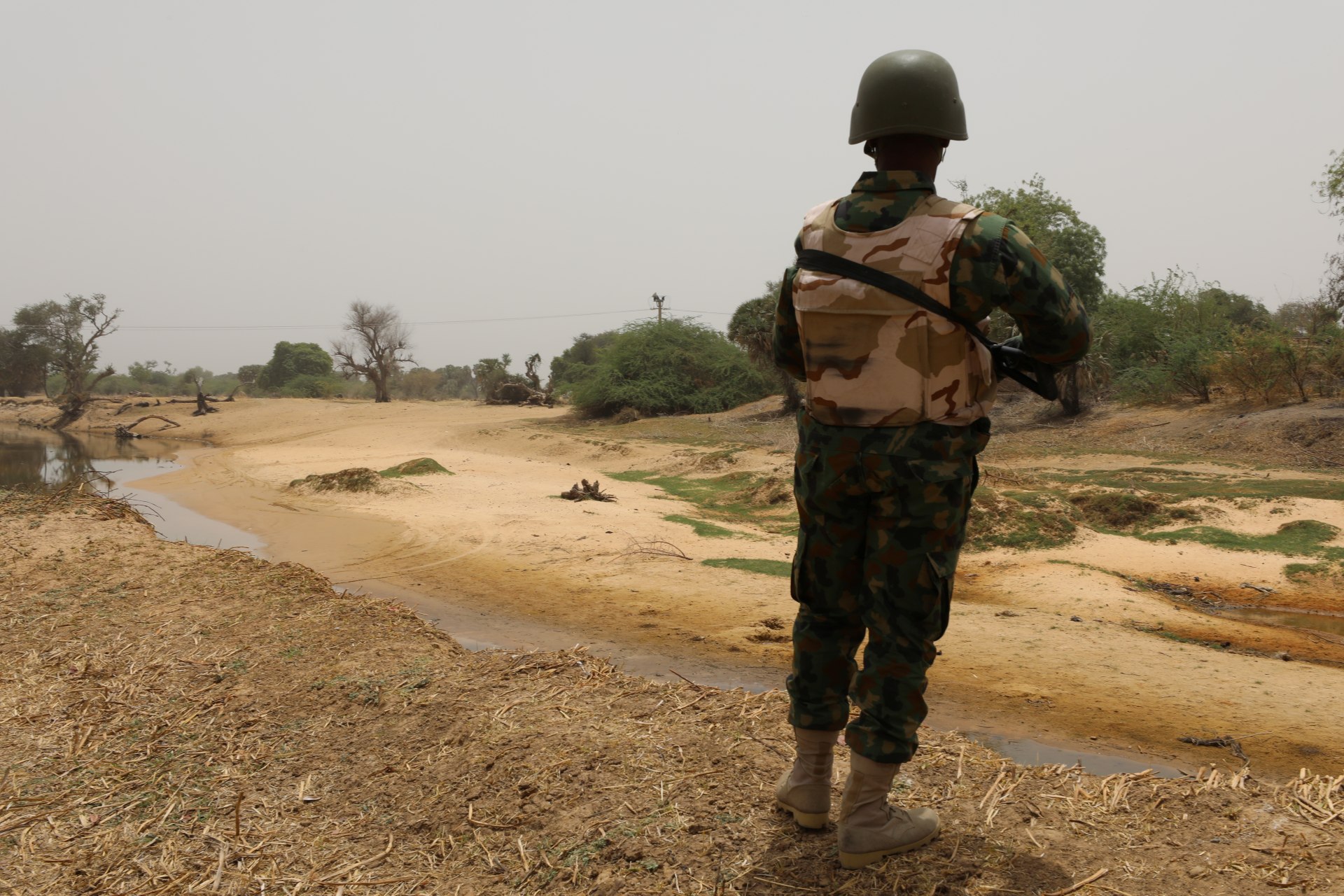Boko Haram Overruns Outgunned Nigerian Military Base

By experts and staff
- Published
By
- John CampbellRalph Bunche Senior Fellow for Africa Policy Studies
On November 18, an army base in Metele in northeastern Nigeria was reportedly overrun by Boko Haram militants. It is estimated that over one hundred soldiers were killed and significant military materiel looted. Nigerian soldiers reportedly made a video allegedly showing and narrating the aftermath of the attack. Much about the incident remains uncertain or disputed.
The video, less than five minutes in length, shows destroyed tanks and other military equipment, which the narrator of the video claims is inadequate and outdated. He claims this is true of most of the military equipment provided to Nigerian soldiers. Agence France Presse carries a description of the video, Premium Times features an interview with an alleged survivor of the attack, and Sahara TV (the broadcast outlet of Sahara Reporters, an expatriate Nigerian media outlet based in New York) has posted online what appears to be the video in question, or something similar.
In a statement, the Nigerian military headquarters refers to multiple videos and characterizes them as “doctored,” “fake news,” and spurious. Its spokesman is threatening legal action against those who disseminate them and calls for public support of the military. Among other things, the military claims that a much smaller number of soldiers were killed at the Metele base than the one hundred or so claimed by the video and other reports. For many Nigerians, military pronouncements have little credibility after years of prevarication and false statements. President Muhammadu Buhari has expressed “shock” over the Metele incident, and has summoned his service chiefs to discuss the matter.
Claims that the Buhari administration and the Nigerian military are inadequately equipping soldiers for the fight against Boko Haram are reminiscent of similar charges made against the Goodluck Jonathan presidential administration at the height of the Boko Haram insurgency between 2014 and 2015. Then, as now, Nigeria faced upcoming presidential elections, which Buhari would go on to win. He campaigned on a platform of tackling corruption and restoring security, and central to his campaign was the defeat of Boko Haram.
The apparent revival of Boko Haram therefore constitutes for President Buhari an electoral liability as well as added danger now faced by ordinary Nigerians in the northeast. Furthermore, according to officials from Niger, the terrorist group recently kidnapped around eighteen girls from two villages near the border with Nigeria. The episode recalls the Boko Haram kidnapping of school girls from Chibok in 2014, though the large-scale kidnapping of school girls has become a common feature of the Boko Haram insurgency. The failure of the Jonathan administration to provide adequately for the military was widely ascribed to corruption. President Buhari has launched a high-profile initiative against corruption, though many Nigerians see it as ineffective. Hence, the revival of Boko Haram and claims that the military is ill-provisioned may call to mind earlier allegations of the Jonathan government’s fecklessness and corruption that Buhari campaigned against.